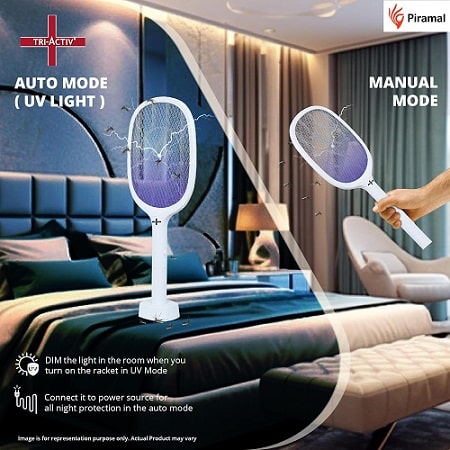A lot of unusual symptoms can be chalked up to some sort of hormonal imbalance. Maybe you’re suddenly feeling more tired or moody than usual, or you’ve gained and lost weight unexpectedly. If you were assigned female at birth, perhaps your menstrual cycles have suddenly changed, and you’re feeling a little teary all the time.
Or, if you’re assigned male at birth, you might’ve noticed some erectile dysfunction, hot flashes, or sudden loss of hair or muscle mass.
The list of possibilities is long, and they can point to a number of different underlying hormonal causes. Symptoms can be frustrating and can interfere with your energy levels and ability to function your best in your day to day life.
The good news is, you might be able to improve some of your symptoms with relatively minor lifestyle changes.
Here are some ways to support better hormonal balance and get your old self back.
-
Switch Up Your Birth Control
If you’re taking hormones of any kind, that’s the first place to look when seeking better hormonal balance. For instance, you might be taking hormonal contraceptives that contain progesterone or a combination of estrogen and progesterone. These hormones can sometimes cause symptoms like headaches, nausea, breast tenderness, weight gain, moodiness, and more.
Every person’s body reacts very differently to the hormones in common birth control pills. Even a minor change — like switching brands — can affect your hormonal balance. If you’re on the pill, but you’re having symptoms you can’t really tolerate, it might be time to switch. There are dozens of different brands and dosages, and you might not have found just the right pill for you.
It might be the case that you’re on a pill with a dose of estrogen that’s too high for your body. It could pay to switch to a lower estrogen option combination pill like Junel Fe. Some people don’t seem to tolerate taking any estrogen at all. For these folks, it might make sense to try progestin only pills, also known as a POPs or the mini-pill.
-
Get Checked and Treated
If you’re not taking hormones, your first line of defense against hormonal imbalance should be ruling out medical conditions. That likely means getting your thyroid levels checked, along with hormones like estrogen, progesterone, and testosterone. A healthcare provider can test your blood and urine and make sure your levels are normal. They can also run other tests to search for all sorts of potential underlying medical conditions.
Serious conditions that can cause hormonal imbalances include certain types of tumors and growths. Damage to an endocrine gland can also cause different types of hormonal imbalance. Certain types of cancers and autoimmune disorders can also lead to hormone issues. It’s important to rule out any condition that could be dangerous or life-threatening before trying to balance your own hormones.
Some common conditions that cause hormonal imbalances may not be directly life-threatening, but they are still serious. Polycystic ovary syndrome (PCOS), for example, is a hormonal imbalance in AFAB people that causes fluid-filled sacs to form around the ovaries. PCOS can lead to complications like infertility, diabetes, heart disease, and sometimes endometrial cancer.
Another hormone disease, called Cushing syndrome, is caused by excess levels of the hormone cortisol. It can cause weight gain, fatigue, depression, high blood pressure, muscle weakness, poor wound healing, and many other symptoms. People with Cushing syndrome and other diseases may need to take special medications that regulate their hormone levels.
-
Adopt a Healthy, Low-Stress lifestyle
Once you’ve adjusted your meds and ruled out a more serious condition, it’s time to look at your lifestyle factors. Your diet has a huge impact on your hormones, because your endocrine system actually makes hormones out of the food you consume. Other factors related to diet, like body weight and phytoestrogen consumption, may influence hormone production in the body.
Consuming a lot of sugar, meat, and other typical Western diet foods may lead to worse PMS symptoms like cramps, irritability and depression. High sugar consumption can also negatively impact your levels of the hormone insulin. Elevated insulin levels can, in turn, mess with other hormones like estrogen and testosterone.
Eating a healthy, balanced diet low in saturated fats and high in fruits, veggies, and fiber can help balance your hormones. Eating plenty of lean protein may also balance levels of certain hormones associated with hunger and fullness. A high body weight is associated with several different types of hormonal imbalances. Eating to achieve a healthier body weight may help balance your hormone levels.
Exercise, sleep, and activities that lower your overall stress levels are also vital for maintaining hormone balance. Exercise reduces the production of stress hormones and decreases excess hormones like estrogen. It also regulates hormones like insulin and testosterone. Activities that lower your stress levels, like medication and yoga, can help balance the hormone cortisol.
Taking Time for Self-Care
The stresses of modern life can make it hard to stay on top of basic health issues like keeping hormones in balance. You’re feeling stressed, so you grab a sugary snack, which makes you feel worse, so you skip the gym. You feel like garbage, your system is all out of whack, and you get caught in a vicious cycle. But the better you treat your body, the easier it is to stay in balance. Making small changes can help you feel better and stave off more serious issues down the line.


